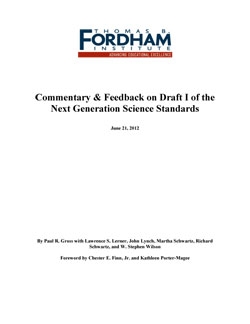Commentary & Feedback on Draft I of the Next Generation Science Standards
In May, Achieve unveiled and solicited comments on the first draft of the Next Generation Science Standards, the product of months of work by a team of writers from twenty-six states. This document provides commentary, feedback, and constructive advice that Fordham hopes the NGSS authors will consider as they revise the standards before the release of a second draft later this year.





